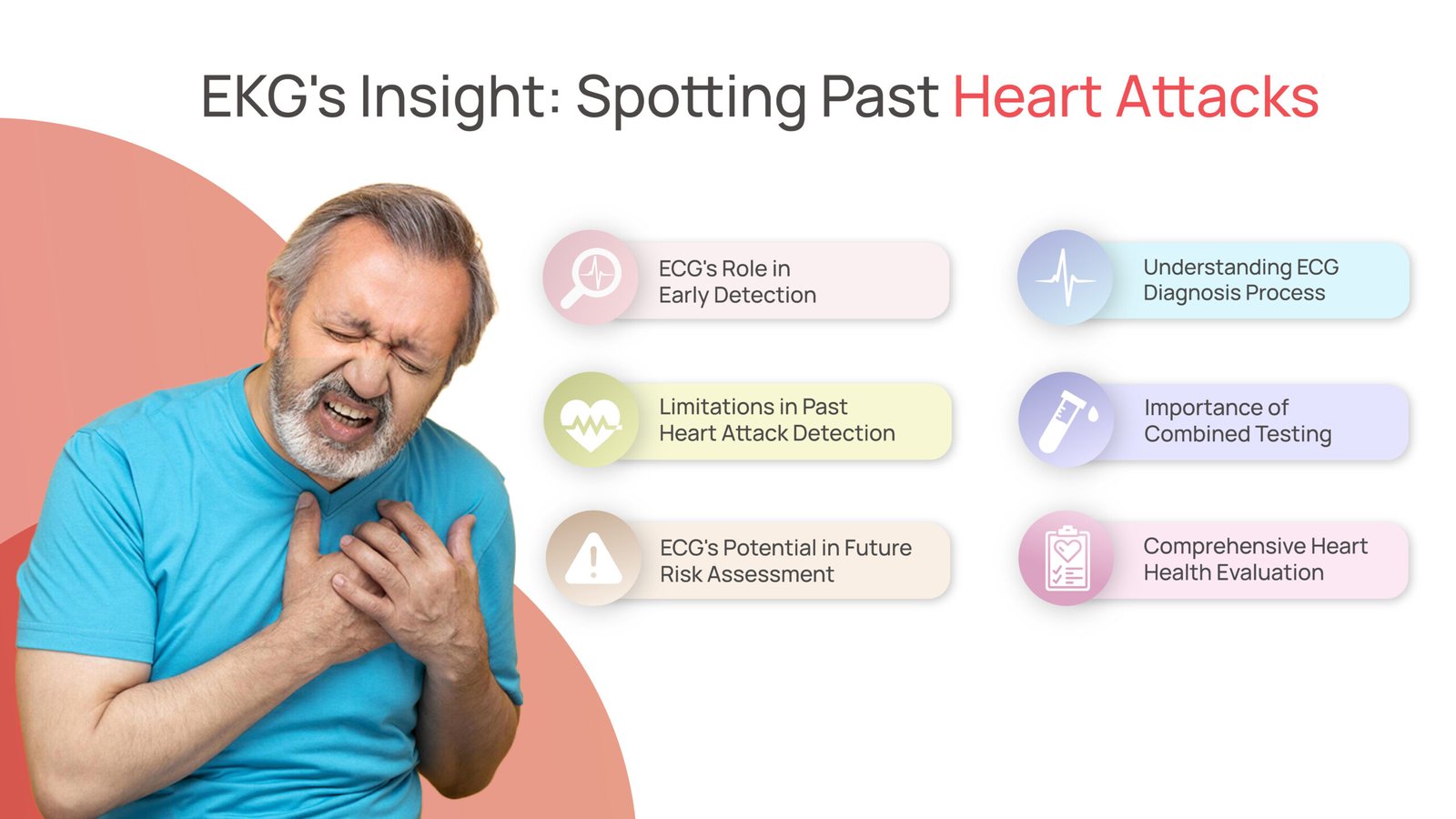
Author:- Mr. Ritesh Sharma
Heart attacks are the horrifying reality of today that the whole world is enduring. Heart problems take the lives of most number of people in the world. In such a scenario, early detection of heart attacks is paramount and ECG does that for you. Through an electrocardiogram, we can measure the electrical activity of the heart over a period of time. This helps us detect heart attacks within a few minutes in a non-invasive way. However, one question arises: Can ECG spot previous heart attacks?
Spotting past heart attacks is crucial to maintain the optimal state of the heart in the future. And since ECG only gives you real-time data about the electrical impulses radiated by the heart, one must think if it is capable of detecting a past heart attack. To provide you with insights into this conundrum of heart attacks detected by ECGs, we present this blog. Here, we will cover all the details concerning ECG’s efficiency in detecting a past heart attack. Moreover, we will deftly transition into a discussion regarding its capability of detecting a future heart attack.
How does an ECG diagnose a Heart Attack?
Before delving into the efficiency of an ECG to diagnose a heart attack, let us try to understand, how it actually diagnoses a heart attack. ECG is usually the first screening done at the hospital whenever you encounter a heart attack. In a myocardial infarction or a heart attack, the damaged heart issue disrupts the flow of electrical energy throughout the heart. Hence, this is clearly illustrated in the report of an ECG test.
Apart from this, some major changes in an ECG test during a heart attack involve ST-segment elevation, ST-segment depression, T-wave inversion, or the presence of QRS complex abnormalities. These deviations from a normal ECG show myocardial ischemia or injury, helping healthcare professionals diagnose a heart attack promptly and accurately.
In addition to an EKG, a blood test is done by healthcare professionals to diagnose a heart attack. Damaged heart tissues during a heart attack usually some proteins called troponins. High levels of troponin I and troponin T are signs of a heart attack. This is indicated by a blood test.
Can EKG detect a Past Heart Attack?
Now comes the real question: can EKG detect a past heart attack? The answer to this question is yes and no. While an EKG alone might not able to detect a past heart attack, especially if it is a silent heart attack, when coupled with some other tests, such as an MRI, CT scan, or ultrasound, a past heart attack might be detected.
A fascinating aspect of an ECG is that it can detect a heart attack you had two years ago unknowingly. The abnormal electric patterns during the test suggest that some parts of your heart might have been damaged due to lack of oxygen.
One interesting study in recent times gauged the accuracy of an ECG test in detecting a past heart attack. The following are the results of the study:
- Poor Sensitivity: According to this study, an ECG only detected a previous heart attack 48.4% of the time in comparison to an MRI.
- Good Specificity: Regardless of poor sensitivity, this study suggested that ECG had good specificity in detecting previous heart attacks as patients experienced that no heart attack had occurred 83.5% of the time in comparison to an MRI.
- Positive Predictive Accuracy: Patients who got an ECG test done said that if the test report suggested that they had a heart attack then the chances of them actually having a heart attack was 72%.
- Negative Predictive Accuracy: Patients who got an ECG test done said that if the test report suggested that they didn’t have a heart attack then the chances of them not having a heart attack was 64.2%.
The poor sensitivity and negative predictive accuracy during this study suggest that ECG might not be the best option alone to predict a past heart attack. Therefore, to diagnose a past heart attack accurately, you must get some other tests such as an MRI or ultrasound done along with an ECG. With a combination of these tests, you can get a past heart attack diagnosed efficiently and prepare yourself for future cardiac events.
Detection of Future Heart Attacks with an ECG
An ECG can indeed detect future heart attacks through an abnormal ECG showcasing abnormalities like T-wave abnormalities, P-wave ECG abnormalities, and QRS complex abnormalities. However, it is important to know that ECG might not be able to detect a future heart attack alone, as people with a normal ECG are also likely to encounter heart attacks in the future.
Many scientists have researched and found out that 5 tests can accurately diagnose future heart attacks. These five tests are as follows:-
- 12-lead ECG test: It gives insights into the thickening of the heart muscle.
- Coronary Calcium Scan: It gives insights into the buildup of plaque in the arteries of the heart.
- C-reactive protein blood test: It provides details about inflammation in the arteries of the heart.
- NT-proBNP blood test: Through this test, you can measure the stress on the heart.
- Troponin T blood test: This test measures the damage to the heart.
In conclusion, while EKG might not be a complete component in detecting past heart attacks, it can come in handy with a combination of blood tests and imaging studies. Regardless of this inefficiency of the diagnostic test, it still remains the best non-invasive screening test that healthcare professionals prefer for the detection of myriad heart abnormalities ranging from heart palpitations to cardiac arrhythmias of different arrhythmia classifications to heart attacks.



